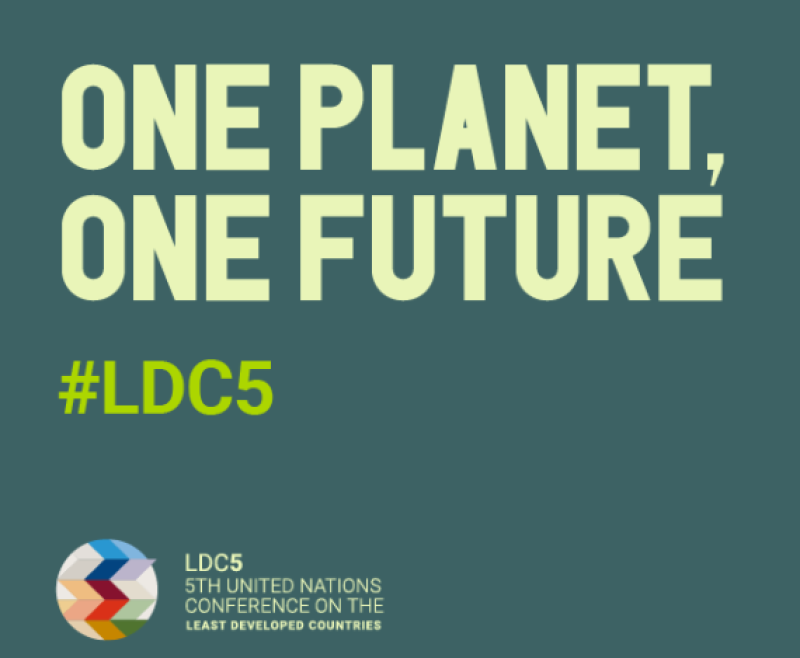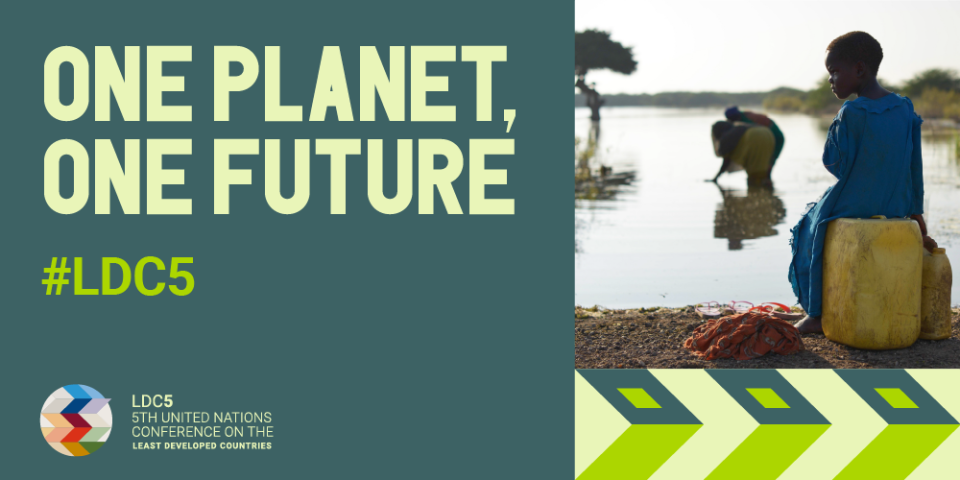

Between March 5-9, 2023, the Fifth United Nations Conference on the Least Developed Countries (LDC5) takes place in Doha, Qatar. With the 2030 Sustainable Development Goals deadline looming, United Nations inter-agency pooled funds are becoming an essential financing instrument for prompting change in LDCs because of the complex and multi-dimensional development challenges they face.
Pooled funds are a comprehensive and effective tool for addressing climate, humanitarian, development, socioeconomic, and environmental challenges—and also certifying that resources are used in equitable, inclusive, sustainable, and accountable ways.
As 2030 approaches, the world’s least developed countries (LDCs) face ongoing challenges on the road to achieving the Sustainable Development Goals (SDGs). The urgency of delivering positive social, economic, and environmental development outcomes that provide multisector and coordinated solutions in these 46 countries has never been greater.
In response, humanitarian and development stakeholders in LDCs bear down to address immediate, medium and long-term priorities that can raise resilience, offer sustainable development gains, and realize the SDGs. Between March 5-9, 2023, the Fifth United Nations Conference on the Least Developed Countries (LDC5) takes place in Doha, Qatar.
This once-in-a-decade opportunity is being used by LDC5 attendees to accelerate sustainable development in parts of the world where international assistance is needed the most. Specifically countries that feature some of the lowest human asset index scores (as per index health and education indicators), gross national incomes that fall well below the $1,018 ceiling and are situated in the top quarter of the economic and environmental vulnerability index.
The UN Multi-Partner Trust Fund (MPTF) Office, United Nations center of expertise in inter-agency pooled funds, will not only follow the proceedings but continue to advocate for increases in pooled financing to countries that fall into the “least developed” category.
For example, in 2021 more than $950 million US dollars were disbursed to LDCs, which accounts for 70% of all MPTF Office resources. The result has been maximized impact and increasing relevance of UN inter-agency pooled funds in supporting the launch and scaling up of novel, integrated and localized solutions.
Pooled resources equals coordinated action
Combining the resources of multiple contributors and promoting joint action amongst UN agencies are what render pooled funds as comprehensive and effective instruments when devising solutions to some of the most complex and multi-dimensional development challenges facing LDCs.
By rapidly pooling the resources and expertise of multiple UN agencies, the Joint SDG Fund has shown how effective they can be in addressing urgent development priorities, as well as easily adjusted to respond to emerging or changing needs. Some 60% of Fund commitments are dedicated to building resilience and catalyzing SDG financing in countries with the greatest need, including LDCs. A good example is the use of integrated national financing frameworks - INFF for short - which help countries mobilise and align financing for sustainable development and the SDGs at the country level. 70% of LDCs are currently using an INFF process to develop financing strategies and advance over 160 financing reforms in public and private finance.

Inclusive development and total transparency
UN inter-agency pooled funds are designed to be equitable and inclusive, providing resources to support locally-led initiatives. A localized approach to financing, pooled funds can meet specific needs and speak to relevant contextual circumstances, particularly those marginalized and vulnerable groups may encounter.
Stakeholders can wield pooled resources in ways that are fair and effective. The Systematic Observation Financing Facility (SOFF) is a new UN inter-agency fund designed to fill missing gaps in weather and meteorological observations in small island developing states (SIDS) and LDCs. SOFF stakeholders rely on pooled financing of multiple UN agencies while fund processes are frequently assessed and evaluated to safeguard the comprehensive and effective use of resources.
Regarding transparency, MPTF Office administered funds are subject to rigorous oversight and monitoring, so resources are used in line with the United Nations principles of good governance and accountability. Adhering to these standards means all fund resources are expended through accountable and transparent means while upholding the overarching aim of supporting local ownership and sustainability in least developed countries.
Financing for the (sustainable) future
Complex and multi-dimensional development challenges call for simplified and collective measures. UN inter-agency pooled funds are relevant for stakeholders in LDCs because they open the door to testing comprehensive and effective solutions to myriad social, environmental, economic, crisis, health, education challenges.
And, as a leader in the application of pooled financing, the MPTF Office provides oversight to see to it that resources are used in an equitable, inclusive, sustainable and accountable manner.
The Fifth United Nations Conference on the Least Developed Countries (LDC5) is a once-in-a-decade opportunity to accelerate sustainable development in countries where international assistance is needed the most and showcase how stakeholders can tap the full potential of pooled financing so LDCs can cover more distance on the road to 2030 and development prosperity.
Follow conference processes and outcomes on 5th United Nations Conference on the Least Developed Countries (LDC5) |